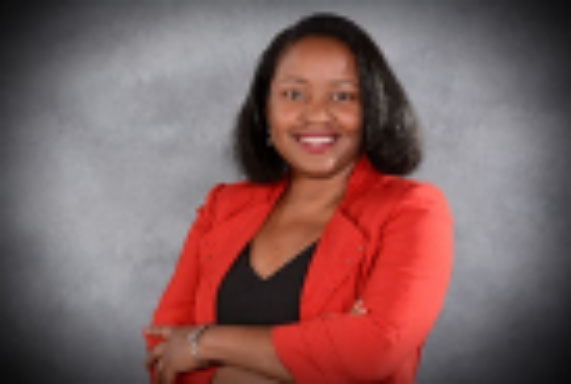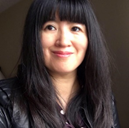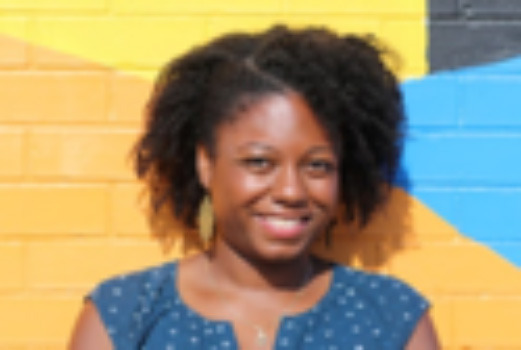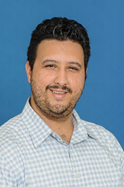Taking closer look at research and experiences of SSHD members
~Researcher’s Window~
This month we are getting better acquainted with the research of Fatima Varner, an Assistant Professor in the Department of Human Development and Family Sciences and Faculty Research Associate at the Population Research Center at University of Texas at Austin.
- What drew you to do work in human development?
When I was a teenager, my Dad took a few social science courses. After reading his textbooks, I became interested in the social sciences and enrolled in a short psychology course the summer before my junior year of high school. I loved it so decided to major in psychology in college. I worked with a developmental psychologist, Lynne Baker-Ward, conducting memory research when I was an undergraduate at NC State. I enjoyed conducting research but as I was applying to graduate school I knew I wanted to focus on research that could help Black families support the academic achievement and well-being of their children.
2. Did you have any mentor or a researcher who had substantial influence in your path or work?
My graduate advisor at Northwestern, Jelani Mandara, was very influential. He was always very honest but caring as a mentor and increased my interest in examining how the intersections of race, gender, and socioeconomic status influenced African American parents and adolescents. Completing a postdoctoral fellowship at the Center for the Study of Black Youth in Context at University of Michigan also was a key point of my trajectory as a scholar. It was an honor to have the opportunity to work with several of the nation’s premier psychologists and educational researchers researching Black youth including Stephanie Rowley, Robert Sellers, Tabbye Chavous, Robert Jagers, and Carla O’Connor. I was impressed with their focus on mentoring scholars who are conducting quality research on positive development of Black youth and their goal to develop scholars that will eventually surpass them in excellence. Working with them as well as my postdoctoral fellow colleagues, Noelle Hurd and Sheretta Butler-Barnes, helped me to refine my interests in exploring the role of race-related stressors in family processes.
3. You have a range of important work, select 1-2 findings that you feel are key contributions to human development and describe those in brief.
My research focuses on the role of race-related stressors in family processes and adolescent development among Black Americans. One major finding was that Black parents’ concerns or fears about their adolescents experiencing racial discrimination in the future were related to lower academic and behavioral expectations (Varner & Mandara, 2013). In addition, the combination of parents’ and adolescents’ racial discrimination experiences, as well as child characteristics such as gender, can shape parenting in Black families (Varner et al., 2020). Parents of boys were more reactive to their children’s racial discrimination experiences when the parents had fewer experiences with racial discrimination. The next step for this research is to understand the mechanisms by which these changes in parenting occur. This work is important because focusing solely on an individual’s personal racial discrimination experiences tends to underestimate the impact of race-related stressors in their lives. Others’ racial experiences can influence individual well-being and our individual experiences in a racially stratified society influence interactions with family members, friends, and others. For example, the recent murders of Ahmaud Arbery, Breonna Taylor, and George Floyd reverberate across our society and have implications for the conversations, interactions, cognitions, emotions, and health outcomes of Black parents and children.
I am also currently conducting a meta-analysis with Aprile Benner and Tasha Beretvas examining the role of school-based marginalization in the development of academic achievement and social-behavioral competencies of school-aged children. The goals are to understand the mechanisms by which different types of marginalization are linked to academic outcomes and whether the strength of the associations differs by social position (e.g., race, ethnicity, sexual minority status, gender, etc) and developmental timing. This work could eventually inform school policies and practices.
4. If you had just one wish for the study of human development, what would it be? How would it advance the field?
I would wish for more support for applied research with underrepresented populations. This work can take longer and underrepresented populations often can be more difficult to access. Yet, this work is important for our society, especially as it diversifies. The less that research on underrepresented populations is seen as specialized but is valued as integral to the advancement of our society and field, the more we can broaden our knowledge of developmental processes and develop effective interventions.
5. A mentoring statement or quote you find most meaningful or life-changing.
“We must desire to see people rising in life, rather than looking for ways to contribute to their fall.” ― Bamigboye Olurotimi
About the researcher

Dr. Fatima Varner is an Assistant Professor in the Department of Human Development and Family Sciences and Faculty Research Associate at the Population Research Center at the University of Texas at Austin. She is on the editorial board at Cultural Diversity and Ethnic Minority Psychology. Her program of research examines the role of race-related stressors in family processes, adolescent development, and health among Black Americans. She is also conducting research funded by the Institute of Education Sciences on the links between school-based marginalization and students’ academic achievement and social behavioral competencies. She earned her B.A. in Psychology at North Carolina State University, her Ph.D. in Human Development and Social Policy from Northwestern University, and completed a postdoctoral fellowship at the University of Michigan at the Center for the Study of Black Youth in Context.
Edited and launched by Deborah J. Johnson & Yoko Yamamoto, SSHD Publicity Committee






